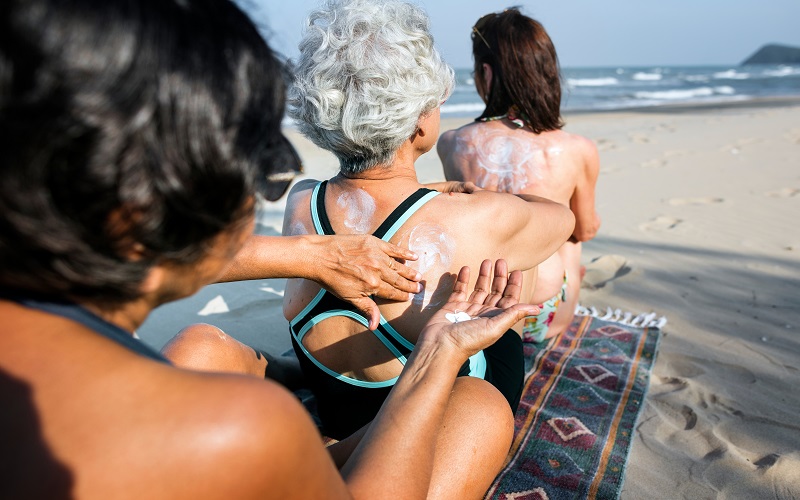
Content derived from DocTalk with David Drimmer, MD, Dermatology Clinic
With sunny days on the horizon, make sure you know the facts about the importance of sunscreen! This DocTalk with dermatologist David Drimmer, MD, from Valley’s Newcastle Dermatology Clinic features some commonly asked questions about sunscreen.
0:12 | What are sunscreens and why are they important for skin protection?
Sunscreens are topical products that protect us from the ultraviolet radiation produced by the sun. Sun protection can come in a variety of forms, but the goal is to protect from sun damage and ultimately to help reduce the risk of skin cancer.
0:39 | What does SPF mean?
SPF stands for sun protection factor. It’s a marker of how well a sunscreen or sun protection product protects against sunburn. The higher the level, the longer a person can be exposed to the sun without developing a sunburn.
1:04 | What SPF number should you look for when you’re buying sunscreen?
The magic number for SPF is 30, so anything 30 or higher is recommended. Numbers above 30 make a minimal difference, so I’ll often tell patients to buy whatever is on sale at 30 and above. You also want to make sure that whatever product you buy is broad spectrum and has both UVA and UVB coverage, which most sunscreens do.
1:40 | How should you apply sunscreen and how often?
This is self-explanatory, if you’re getting sun exposure on parts of your skin, that’s where you should be applying sunscreen. A thin layer is all you need, and make sure you rub it in and cover the entire area. Additionally, regardless of the protection level or SPF, sunscreen is only good for about two hours at a time per application, so you need to reapply sunscreen every two hours.
2:22 | Do we need to use sunscreen on cloudy days or in seasons other than summer?
You would be surprised at how much ultraviolet radiation passes through clothing, even on cloudy days & during winter months. I usually recommend that people make it part of their daily routine to wear sunscreen. Even if it’s December and it’s cloudy or rainy out, you can still get a lot of UV sun damage during those days as well.
2:55 | What are other ways we can protect ourselves from sun exposure?
I always tell my patients, you know, try to avoid being in direct sunlight during peak hours. So, peak hours tend to be 10 AM to 3 PM. If you’re going to be in the sun, try to seek shade as much as you can. You can wear SPF rated clothing as well, and then obviously, you know, applying the sunscreen as a base, that’s always helpful.

David Drimmer, MD is a board-certified dermatologist trained at Valley’s Newcastle Dermatology Clinic.
For questions or for an appointment, please call 425.690.3439.

